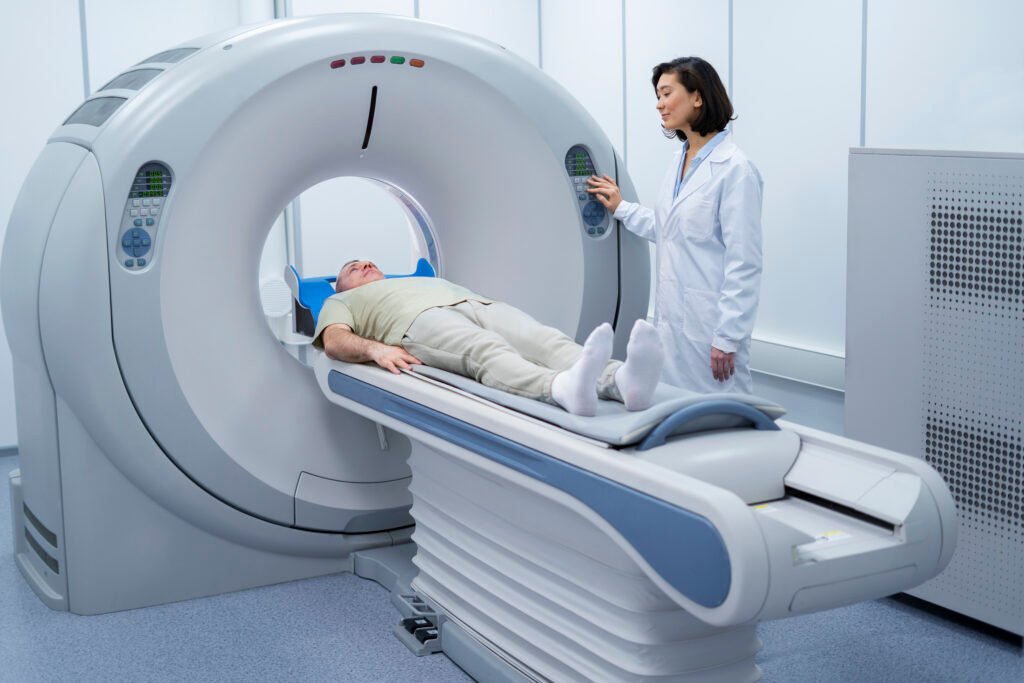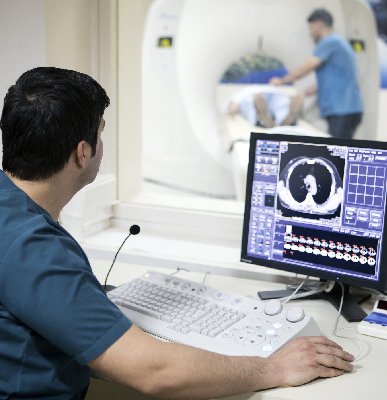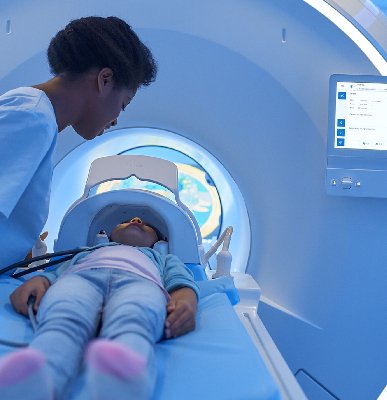
Radiology is a medical specialty that employs imaging technologies to diagnose and treat diseases within the body. It encompasses a range of techniques such as X-rays, computed tomography (CT), magnetic resonance imaging (MRI), ultrasound, and nuclear medicine, including positron emission tomography (PET). Radiologists are medical doctors who specialize in interpreting these images to identify abnormalities, guide diagnostic procedures, and provide targeted treatments, such as interventional radiology procedures which can remove blockages or deliver treatments directly to cancerous tumors. Radiology is pivotal in the early detection of diseases, aiding in prompt and accurate treatment planning and monitoring disease progression or response to treatment, thereby playing a critical role in comprehensive patient care.
Vihaan Hospital & Research Centre boasts a state-of-the-art Radiology department, equipped with cutting-edge imaging technologies designed to offer comprehensive diagnostic and interventional services. The department features advanced MRI, CT, ultrasound, X-ray, and nuclear medicine facilities, enabling precise diagnoses and facilitating effective treatment planning across a wide range of medical conditions. Spearheaded by a team of highly skilled radiologists and technologists, Vihaan Hospital is committed to providing accurate, timely, and patient-centered imaging services. The department also excels in performing minimally invasive, image-guided procedures, significantly improving patient outcomes. Emphasizing safety and quality, Vihaan Hospital’s Radiology department ensures optimal care and support for all patients, contributing to the hospital’s reputation for excellence in medical services.
Radiology F&Q's
Radiology is a medical specialty that uses imaging techniques to diagnose and treat diseases. It encompasses various methods such as X-rays, computed tomography (CT) scans, magnetic resonance imaging (MRI), ultrasound, and nuclear medicine, including positron emission tomography (PET) scans.
Magnetic Resonance Imaging (MRI) uses powerful magnets and radio waves to create detailed images of the organs and tissues within the body. It is particularly useful for imaging the brain, spinal cord, joints, and soft tissues, offering a high level of detail that is beneficial for diagnosing a variety of conditions.
A CT scan, or computed tomography scan, uses multiple X-ray measurements taken from different angles to produce cross-sectional images of the body. This provides more detailed information than a single X-ray image, allowing for better examination of internal organs and structures.
Interventional radiology is a subspecialty of radiology that uses imaging techniques, such as X-rays, CT scans, and ultrasound, to guide minimally invasive surgical procedures. These procedures can diagnose, treat, or relieve symptoms of disease without the need for traditional surgery.
Yes, radiology is not only pivotal in diagnosing conditions but also plays a crucial role in treating them. Interventional radiology, for example, allows for treatments such as angioplasty, stent placement, tumor ablation, and targeted drug delivery directly to affected areas, minimizing damage to surrounding tissues.
To ensure patient safety, radiological procedures are performed with the lowest possible exposure to radiation, following the ALARA (As Low As Reasonably Achievable) principle. Protective measures, such as lead aprons or shields, are used when necessary. The use of non-ionizing radiation techniques, like MRI and ultrasound, is also preferred when appropriate.











